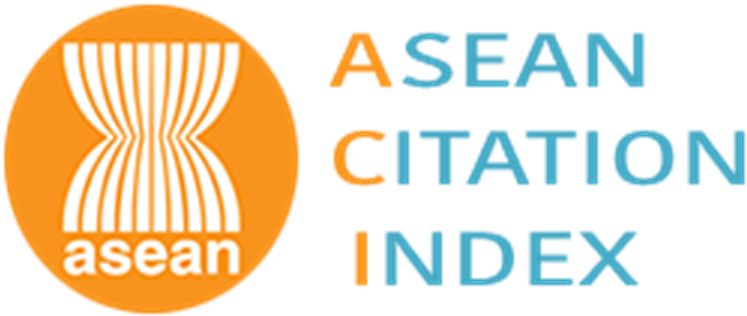รูปแบบการพัฒนาขีดความสามารถในการปฏิบัติงานของเลขานุการผู้บริหารในสถานประกอบการ
Abstract
การวิจัยครั้งนี้มีวัตถุประสงค์เพื่อศึกษาปัญหา อุปสรรค และองค์ประกอบของขีดความสามารถในการปฏิบัติงานของเลขานุการผู้บริหาร เพื่อพัฒนารูปแบบการพัฒนาขีดความสามารถในการปฏิบัติงานของเลขานุการผู้บริหาร และเพื่อจัดทำคู่มือการพัฒนาขีดความสามารถในการปฏิบัติงานของเลขานุการผู้บริหาร ผู้ให้ข้อมูลในการวิจัยคือ ผู้บริหารและเลขานุการผู้บริหารในสถานประกอบการภาคอุตสาหกรรมการผลิตและบริการ เครื่องมือที่ใช้ในการวิจัย ประกอบด้วยแบบสัมภาษณ์เชิงลึก และแบบสอบถาม สถิติที่ใช้ในการวิเคราะห์ข้อมูล ประกอบด้วย ค่าความถี่ ค่าร้อยละ ค่าเฉลี่ย ค่าเบี่ยงเบนมาตรฐาน และการวิเคราะห์เนื้อหา ผลการวิจัยพบว่า องค์ประกอบของขีดความสามารถในการปฏิบัติงานของเลขานุการผู้บริหาร ประกอบด้วย 1) ด้านเจตคติ 2) ด้านบุคลิกลักษณะ 3) ด้านทักษะในการปฏิบัติงาน และ 4) ด้านความรู้ ผลการพัฒนารูปแบบการพัฒนาขีดความสามารถในการปฏิบัติงานของเลขานุการผู้บริหาร พบว่ารูปแบบการพัฒนาขีดความสามารถที่พัฒนาขึ้น ซึ่งประกอบด้วยองค์ประกอบขีดความสามารถ 4 ด้านนั้น มีจำนวน 23 รายการขีดความสามารถ ดังนี้ 1) การเก็บรักษาความลับ 2) มีใจรักงานบริการ 3) มีทศันคติที่ดี 4) รักงานเลขานุการ 5) มีจรรยาบรรณในวิชาชีพ 6) มีความซื่อสัตย์ 7) มีความรับผิดชอบสูง 8) มีบุคลิกภาพดี 9) มีมนุษยสัมพันธ์ดี 10) มีวินัยในการทำงาน 11) มีปฏิภาณไหวพริบดี 12) การบริหารเวลาให้กับผู้บริหารตามลำดับความสำคัญ 13) การวางแผนการทำงานให้เสร็จตามกำหนดเวลา 14) การวางแผนและเตรียมข้อมูลให้ผู้บริหาร 15) การเรียนรู้และปรับตัวให้เข้ากับรูปแบบการทำงานของผู้บริหาร 16) การทำงานหลายอย่างในเวลาเดียวกัน 17) การใช้เทคโนโลยีสมัยใหม่ 18) การใช้ภาษาอังกฤษ 19) ความรู้งานในหน้าที่เลขานุการ 20) ความรู้ในระบบงานและโครงสร้างธุรกิจขององค์กร 21) ความรู้ในงานมวลชนสัมพันธ์ 22) ความรู้เกี่ยวกับองค์กรต่างๆ ที่ต้องติดต่อและทำธุรกรรม และ 23) ความรู้ด้านการบริหารลูกค้าสัมพันธ์ ผลการจัดทำคู่มือการพัฒนาขีดความสามารถในการปฏิบัติงานของเลขานุการผู้บริหาร พบว่ามีความเหมาะสมในการนำคู่มือไปประยุกต์ใช้ในสถานประกอบการ
This research studies the problems, obstacles, and components of the competency of executive secretaries, and as a result, a competency development model and manual for executive secretaries can be created. Representative samples were drawn from management and executive secretaries from industrial manufacturing companies and service industries in Thailand. The research instruments comprised in-depth interviews and a survey where the collected data were analyzed by calculating frequency, percentage, average, standard deviation, and content analysis. As a result, it was seen that the components of the competency of executive secretaries consist of the following: 1) attitude, 2) traits, 3) skills, and 4) knowledge. Consequently the competency development model for the executive secretaries consists of 23 competencies with 4 components: 1) confidentiality protection, 2) service mindedness, 3) positive attitude, 4) personal appreciation for secretarial work, 5) abiding by professional ethics, 6) integrity, 7) responsibility, 8) good personality, 9) positive human relations, 10) work discipline, 11) intelligence at work, 12) time management and prioritization, 13) effective assignment planning to meet a corresponding due date, 14) planning and preparing information for executives, 15) adapting one’s working style to accommodate the preferences of executives, 16) ability to perform several jobs at the same time, 17) ability to use modern technological advancement, 18) good command of English, 19) good knowledge of the secretarial field, 20) knowledge of business and organizational structures, 21) abilities and skills related to public relations, 22) knowledge of organizations contacted and with which transactions were made, and 23) knowledge of customer relationship management. The developed model and the manual of the competency development for executive secretaries were found to be suitable in terms of form and practical application.
Keywords
DOI: 10.14416/j.kmutnb.2017.06.007
ISSN: 2985-2145





